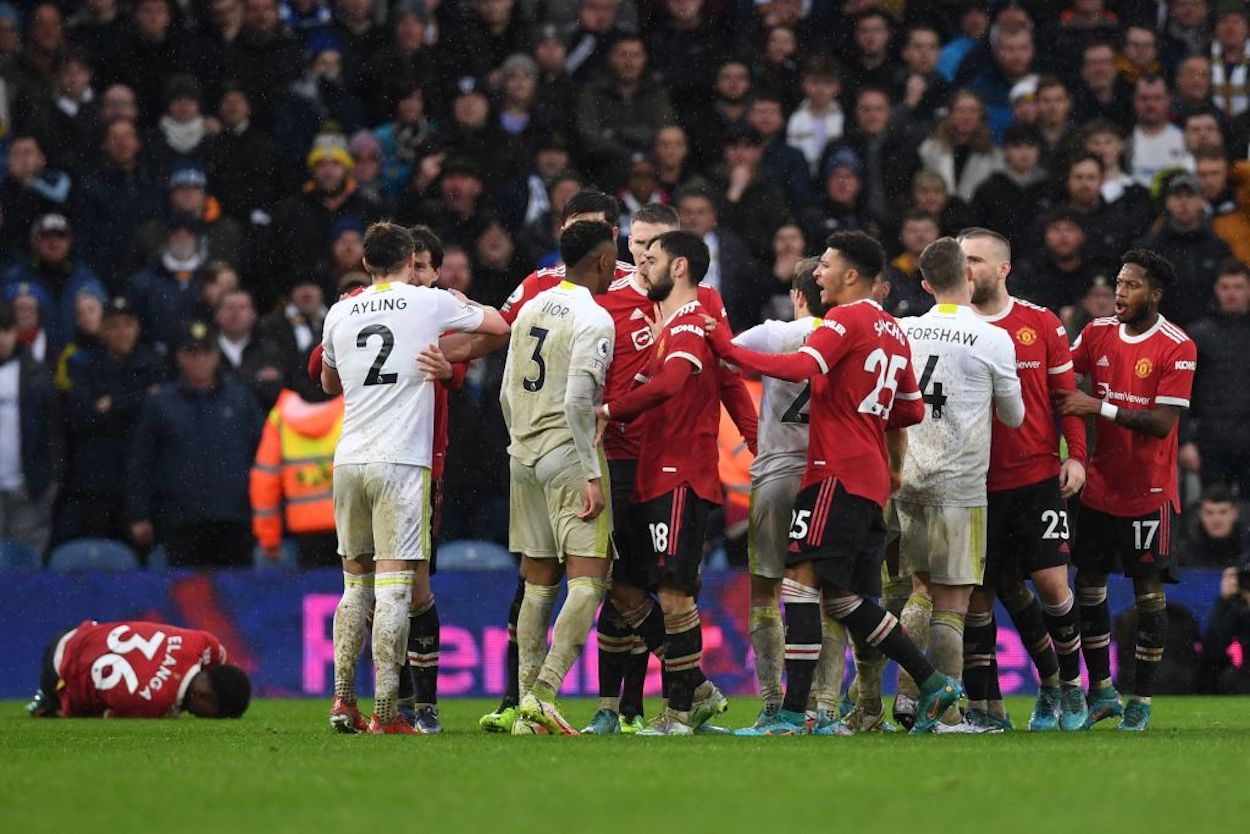Soccer
Why Are Leeds and Manchester United Rivals?

By and large, most soccer rivalries have a pretty clear origin point. Arsenal and Tottenham, for example, play mere miles away from each other, making each North London Derby a battle for local supremacy. The same can be said for the Merseyside Derby, the Manchester Derby, and countless other duels up and down England. The source of other tension, however, is a bit less obvious. Consider the dislike between Manchester United and Leeds.
Upon first glance, there isn't much to go by. The two clubs call different cities home. They've also had different footballing fortunes, with Leeds slipping out of the top division and only returning to the Premier League for the 2020-21 campaign. So what's behind the rivalry?
Let's take a trip back into English history because, while there's sport involved, this one is bigger than football.
Tensions between Manchester and Leeds date back to the English Civil War and the Industrial Revolution

If you clicked into this post, you were probably expected a crash course in sports history. While we'll get there eventually, we have to revisit some concepts you might remember from high school first.
In the 1400s, a conflict known as the War of the Roses sprung up in England. Without getting too deep into the details, succession sat at the core of the fighting. The Lancastrian branch of House Plantagenet was represented by a red rose, while a white rose stood for the House of York. The fighting lasted for nearly 30 years and was responsible for more than 100,000 casualties before Henry Tudor took the throne and began a new royal dynasty.
So what does that have to do with soccer? Well, Leeds is the second-largest city in Yorkshire, while Manchester is historically tied to Lancashire (although today Greater Manchester has become its own county).
Moving forward in the timeline, both cities flourished during the Industrial Revolution. Leeds was at the heart of England's wool industry, while Manchester took advantage of coal, steam power, and factories to become the center of the cotton-milling world. That led to an old-money vs. new-money style rivalry, with the two cities trying to outshine the other.
Eventually, the Leeds-Manchester rivalry manifested on the football pitch
Once a rivalry exists, it's going to manifest in all sorts of ways. Given England's sporting culture, it was only a matter of time until Manchester United and Leeds started going at it.
While the two club's fortunes have been different in recent years, that wasn't always the case. As spelled out by 90min.com, both United and Leeds were on more equal footing back — if anything, they were two of the country's biggest powers — in the day and had some heated encounters. During the 1965 FA Cup campaign, for example, a fight broke out during a semifinal meeting between the two clubs, with the Yorkshire Post writing that “Both sides behaved like a pack of dogs snapping and snarling at each other over a bone.”
To add further drama to the affair, Leeds ended up winning the FA Cup that season and finishing second in the league. The team that beat them to the top spot? Manchester United, as the Red Devils had the superior winning percentage and both clubs finished with the same points tally.
Violence and hooliganism added to the tension, but things died down after Leeds were relegated in 1982.
Despite the cliche, though, time doesn't heal all wounds. Wherever and whenever Leeds and Manchester United meet, the rivalry resurfaces as intensely as ever.











